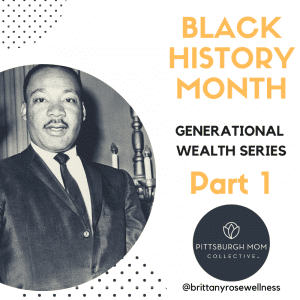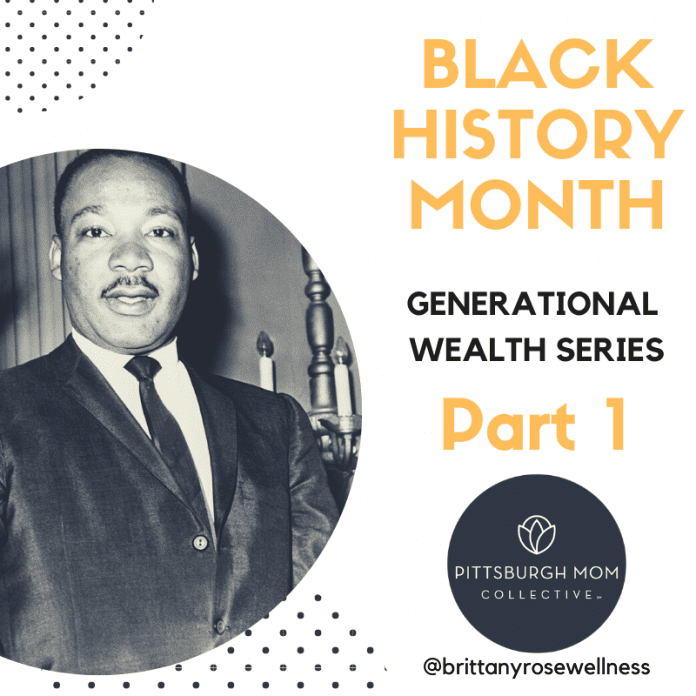Black history month is a time where we celebrate and appreciate all the strides People of Color have made. While it should be celebrated ALL year, I’m excited to add my own black girl magic to this month.
There once was a time when it was against the law for people of color to read, let alone be a person that had their own freedom. It’s hard to believe how so many people could be oppressed, yet still find ways to overcome all the adversities thrown at them.
With this short 3 part series I’d like to highlight another topic that was kept hidden from the black communities, that is financial literacy.
Financial literacy is one of the most needed things to know in the real world and yet it is not taught in school. This leads us to lean on what our elders passed down to us. Depending on what they knew, this could be a good or bad thing. Unfortunately for People of Color, a vast majority of us were handed down beliefs around money that cause financial struggles and stresses that lead to poverty. Not understanding money has made generational wealth almost impossible for the communities affected by this.
Great news is, when we know better we do better. I’m going to share some outdated beliefs that are keeping you from creating generational wealth for your children and how to reframe those so that you can be the generational curse breaker that will change the trajectory of your children’s lives.
As a disclaimer, this isn’t to say what you were taught is wrong. I’m sure these beliefs kept our ancestors safe during their time, and now it’s time to create our own.
- People of color can’t be wealthy. This is a doozy, this belief attacks our worth and our fear of being seen as well off with money. I understand why, essentially this put a target on your back, which was completely dangerous (to be frank, it still can be). Even with some of the danger removed, it has now kept people from believing in themselves, going for their goals and ultimately feeling like they don’t deserve it. It’s a sad form of generational trauma that is very alive today. This has led to subconscious self sabotage that keeps people from being able to make better money choices, furthering that belief even more.
How can we rewrite this belief that is so strong? Choose a better one and begin to practice it in your day to day life. Here are some examples you can say to yourself and your children.
- I am worthy of abundance. I am able to afford the lifestyle of my dreams. I am a money magnet.

- We have to work painstakingly hard to be paid well, if at all. There’s this stigma of how strong and hard working people of color are, stemming from slavery days. In more modern times, it’s focused on how strong the black woman is and it’s bullshit. We only work this hard because we have been conditioned to do so. We watched our mothers, grandmothers work multiple jobs just to feed us, only to feel like we never saw them because they were always at work. Now that has turned into a belief that money won’t come if it’s not hard work or you have to be doing something in order to deserve money. This belief is the #1 cause of burnout among women of color, it also keeps them from considering other avenues of generating income because it seems “too easy”. It also separates mothers from their children, yes they/we are making money but having to trade our time to do so. Here are 3 rewrites of this belief.
- Money comes to me easily. Abundance is my birthright. Wealth flows to me easily and quickly.
This is barely the tip of the iceberg when it comes to financial literacy, yet it’s the most important step. In order for any change to happen, you have to understand how you got where you are to get somewhere else. You also have to be willing to believe in something new, before you will experience it.
If this is something completely new and it feels weird saying these mantras, keep practicing. Just like learning a new topic or riding a bike, it takes a little time before it feels natural.
Stay tuned for part 2 where I talk about basic money concepts you can learn and pass onto your children.















